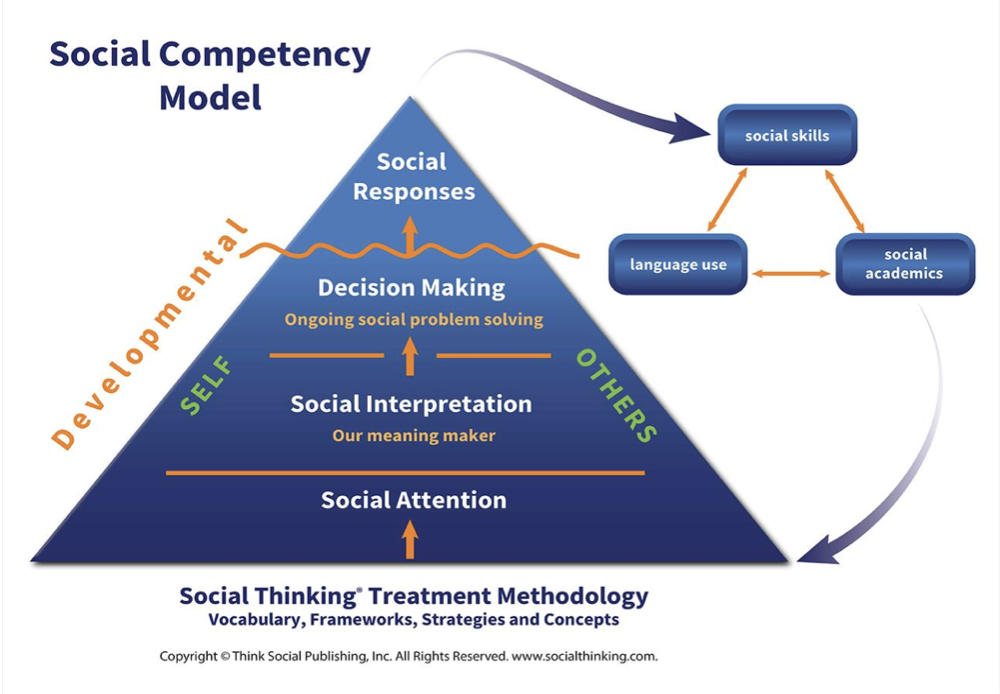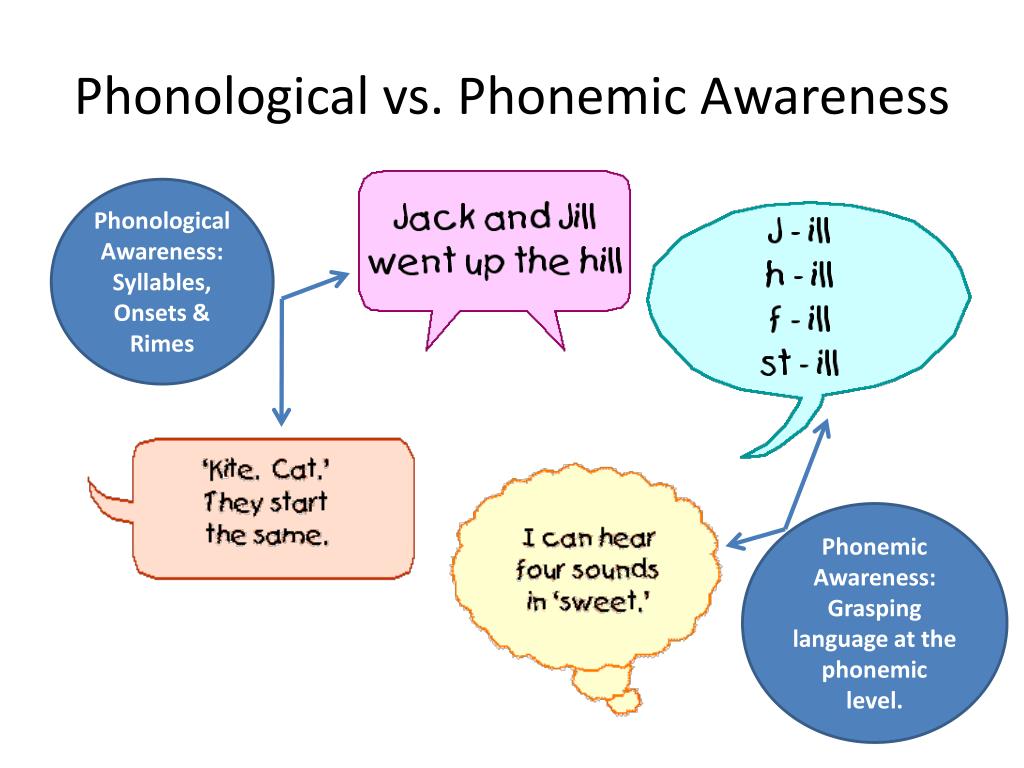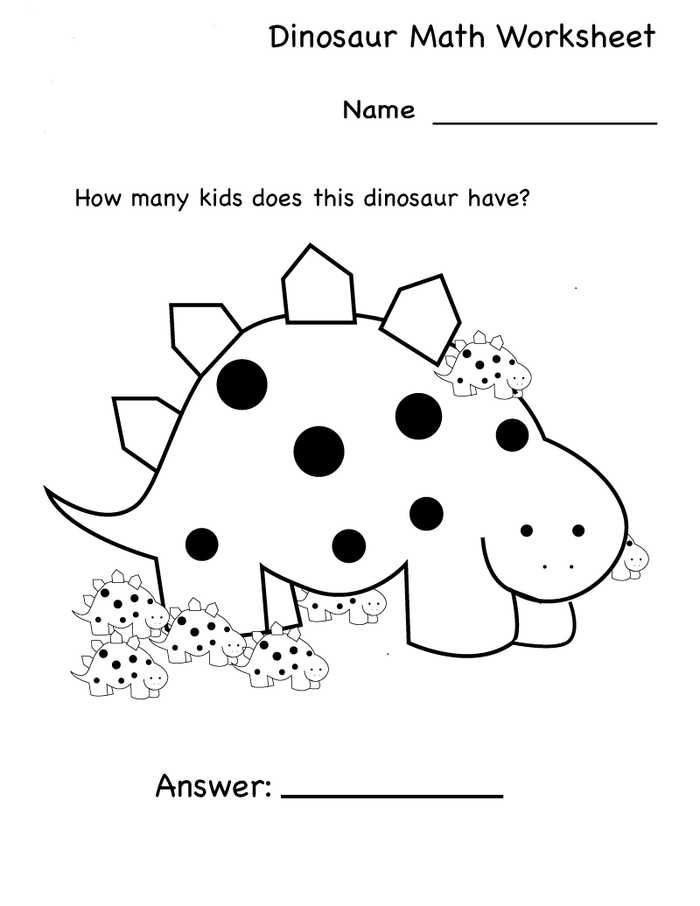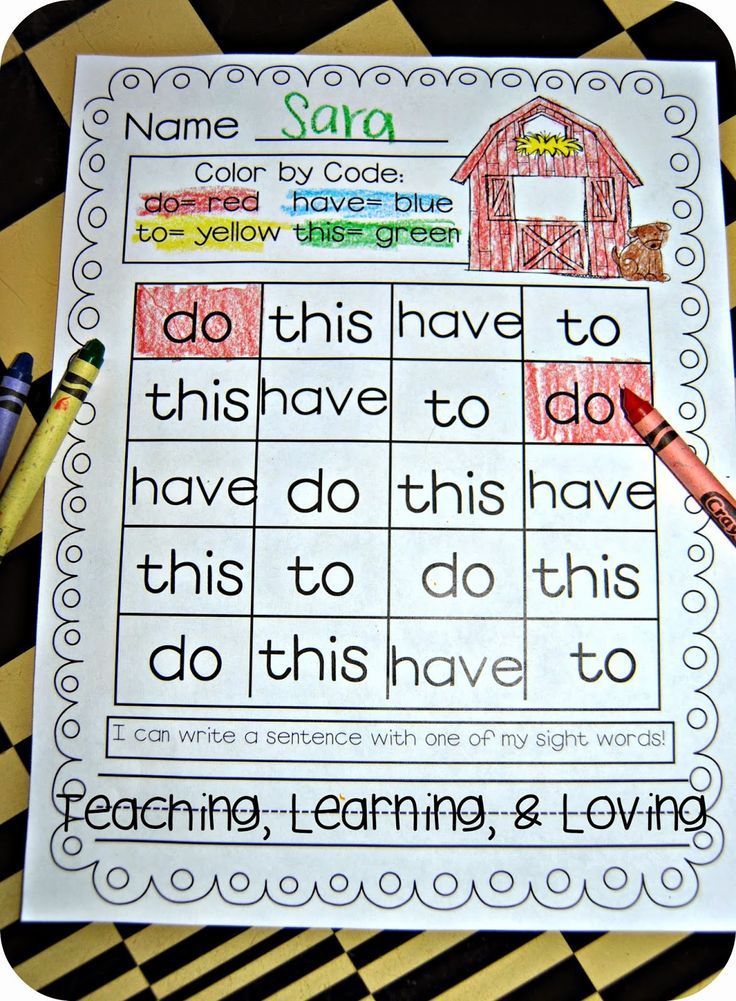Learn social skills
10 Tips to Be More Social
Jump to section
What are social skills?
The benefits of having good social skills
How can I enhance my social skills?
Do I have trouble with social skills?
The bottom line
We all have moments where our social skills fail us. Perhaps your joke was greeted with awkward silence. Or, at a restaurant, you enthusiastically told the waiter that they, too, should enjoy their meal.
The odd mishap with friends is hardly cause for alarm. The embarrassment will soon transform into an inside joke, deeping your bond with others.
But, if you fumble too often, it can take a toll on your self-esteem and mental health. If you don't know how to improve your social skills, it can hold you back socially and at work. Some behaviors can come across as antisocial or even harmful to others, while simple shyness can read as aloof, standoffish, or arrogant. Knowing this might not put you at ease, but it can help you understand other people's reactions.
Now that companies are starting to pull teams together in person, many people are feeling some level of social anxiety. Just because it feels uncomfortable, not feeling confident in your ability to spend more than 5 minutes chatting with coworkers isn't an option. The good news? The past two years haven't helped anyone feel socially smooth. Many people are feeling awkward. The bad news? Many people are behaving awkwardly, and misunderstandings will happen.
You don’t have to change yourself. But you might have to change your approach, not just to appear more sociable but to avoid the most unnecessary points of friction that undermine your confidence. This will not only improve how others perceive you, but it can also benefit you in other ways.
If you’ve been feeling out of place, developing your social skills can help you feel more at home with your colleagues. It can also improve your confidence, sense of belonging, and ability to collaborate at work — all important skills that will affect your mental health, motivation, and ability to succeed.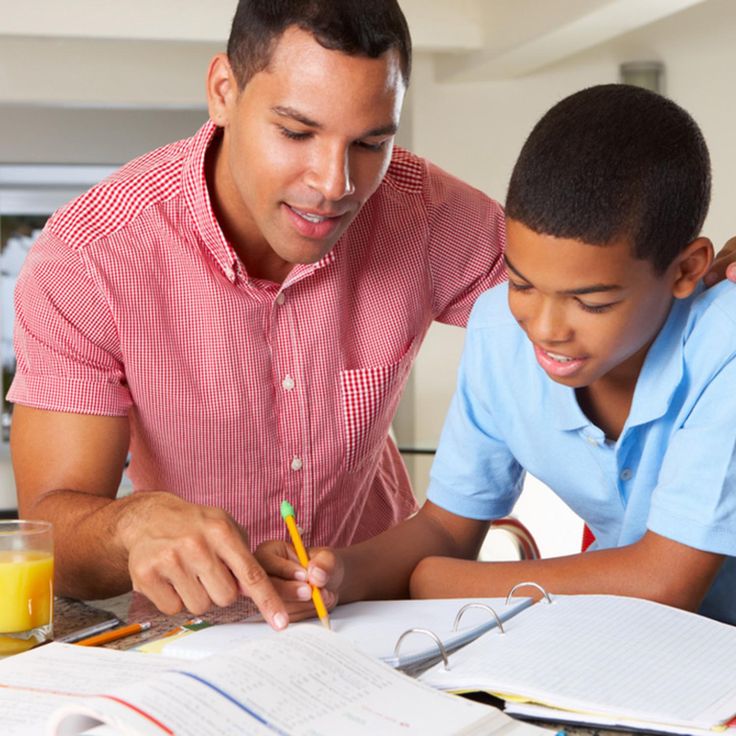
Training your social skills can be difficult. But we know you can do it.
Here’s how to improve social skills at work, with strangers, and in every other part of your life.
Social skills are the verbal and nonverbal communication skills required to foster connections and appropriately navigate social settings. Think about socializing a puppy: The more interaction it has with other puppies when it’s young, the better it knows how to act when it’s older. Humans are similar.
Most of the time, when people think of “social skills,” they think of their everyday interactions. It’s how they gain acceptance from their colleagues or peers and involves being comfortable when speaking to strangers, easily making friends, and earning the respect of your co-workers.
These things don’t always come naturally. Individuals with social anxiety, for example, might have trouble connecting with others. Introverts or shy people who like to keep to themselves may actively avoid social interactions — and appear rude as a result.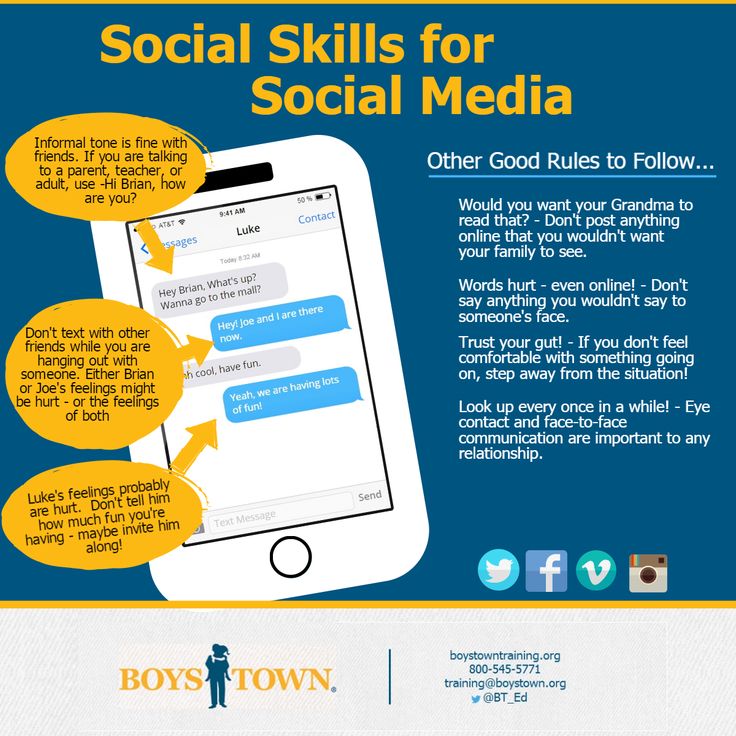 Or, sometimes, we get uncomfortable around people we don’t know and lose some of our social confidence.
Or, sometimes, we get uncomfortable around people we don’t know and lose some of our social confidence.
No matter the case, it’s nice to have some basic principles to fall back on. Knowing how to develop your social skills will help you in the long run.
The benefits of having good social skills
So what’s in it for you? Well, a lot. Improving your social skills is essential for your social health and overall well-being.
In terms of mental health, people with strong social ties have lower rates of anxiety and depression. They also have higher self-esteem, greater empathy, and are more cooperative.
For your physical health, researchers knew as early as 1988 that lack of social connection is more harmful than obesity, smoking, and high blood pressure. And, more recently, they learned that isolation is associated with a 50% increased risk of dementia as you age.
Sharpening your social skills will also pay you back in the form of social capital.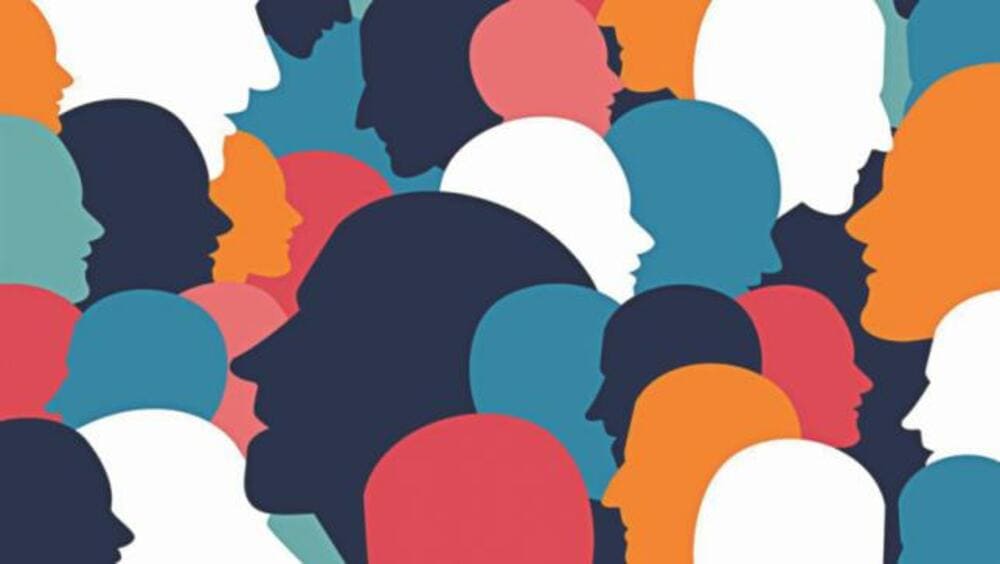 Entire university programs are devoted to studying this concept. But, to keep it simple, we can define social capital as the sum of all benefits from being part of a social group.
Entire university programs are devoted to studying this concept. But, to keep it simple, we can define social capital as the sum of all benefits from being part of a social group.
Social capital comes with its own list of benefits:
- People will like working with you. Social capital often translates to goodwill from your colleagues; if you’re easy to work with, people will be in your corner when you need it — like when you’re gunning for that next big promotion.
- When you ask for help, people provide it. What goes around comes around. If you’re kind and helpful to others, they’ll do the same for you.
- Others will understand your boundaries. Don’t want to go to a social event? It’ll be easier to refuse when people trust there are no hard feelings. When you use your social skills, you can help others see where you’re coming from and better communicate your feelings.

- Clients will love you. Whether you’re a freelancer, salesperson, or customer service rep, social skills are essential to winning and keeping clients. People like good work with a good attitude.
- You’ll nail your job interviews. Job interviews are about making great impressions. This is the perfect environment to flex your social skills. Use open body language, eye contact, and friendly facial expressions to impress your interviewers.
In today’s gig economy, social capital is critical. It can earn you a higher salary, win you more interesting projects, and may be the deciding factor in your next job application. Consider working with a BetterUp coach to improve this area of your career.
How can I enhance my social skills?
We’re glad you asked! You can definitely learn or improve your social life. Here are some general guidelines to get you started:
1. Improve your emotional intelligence
Put yourself in their shoes. Imagine what they might be going through and try to understand their feelings. You’ll better understand their perspective, which will help you respond appropriately.
Imagine what they might be going through and try to understand their feelings. You’ll better understand their perspective, which will help you respond appropriately.
2. Look inwards
Pay attention to your emotions, thoughts, behaviors, and triggers. Then it will be easier to control them while interacting with others.
3. Practice effective communication skills
Use tactics like active listening and open body language to demonstrate attentiveness. This opens the door to more positive interactions.
4. Fake it ‘till you make it
Try acting like your more social peers, even if it’s just small talk. It will become easier every time you try it.
5. Ask more than you speak
You don’t have to worry about speaking up; ask open-ended questions and use active listening. People love talking about themselves.
6. Give compliments
Everyone likes a good compliment. Tell someone that they were great in that meeting, or their project was top-notch.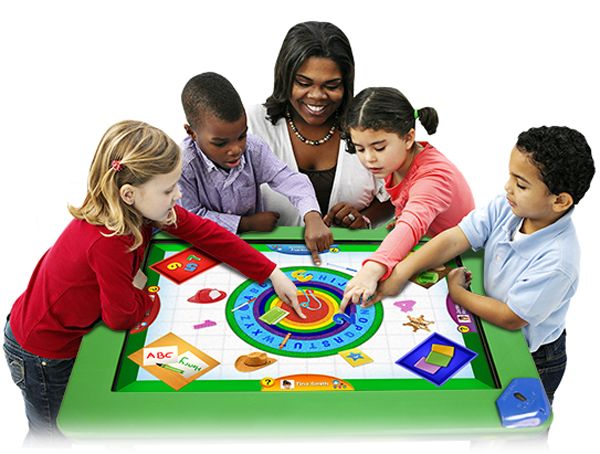 Be specific.
Be specific.
7. Be polite
Good manners go a long way. Words like “please” and “thank you” are small but powerful ways to soften requests.
8. Use open body language and non-verbal communication
Face the person with whom you’re speaking. Pay attention to your tone of voice. Make eye contact. Use your body language to show you’re present and paying attention.
9. Read the news
So many conversations revolve around current events; try to keep up so you can chime in.
10. Don’t let your thoughts get the best of you
It’s okay to feel a little anxious, but don’t let it get the best of you. You’re not your thoughts. Take a deep breath and try to let them go; this will help you relax in a social situation.
11. Start small
Start by spending time in a coffee shop or practicing your conversation skills with family members. Then you can ease into larger social settings. Before you know it, you'll be making new friends at your next social gathering.
Do I have trouble with social skills?
A lot of people with anxiety or ADHD have a hard time connecting with others. Introverts or very shy people may also struggle.
Here are some signs that you don't have great social skills:
- You scroll on your phone while people talk to you. Smartphones are great at keeping us connected, but often to the detriment of those right in front of us. It puts a physical barrier between you and the other person at best. This communicates non-receptiveness to their words, and at worst, you seem bored, uninterested, and rude.
- You never take off your headphones. Sure, you might pause the music while someone talks to you. But they don’t know that. Take out your earbuds to show that you’re listening.
- You never do anything in person. These days, you can order just about anything to your door. But while this is wildly convenient, it cuts you off from the outside world.
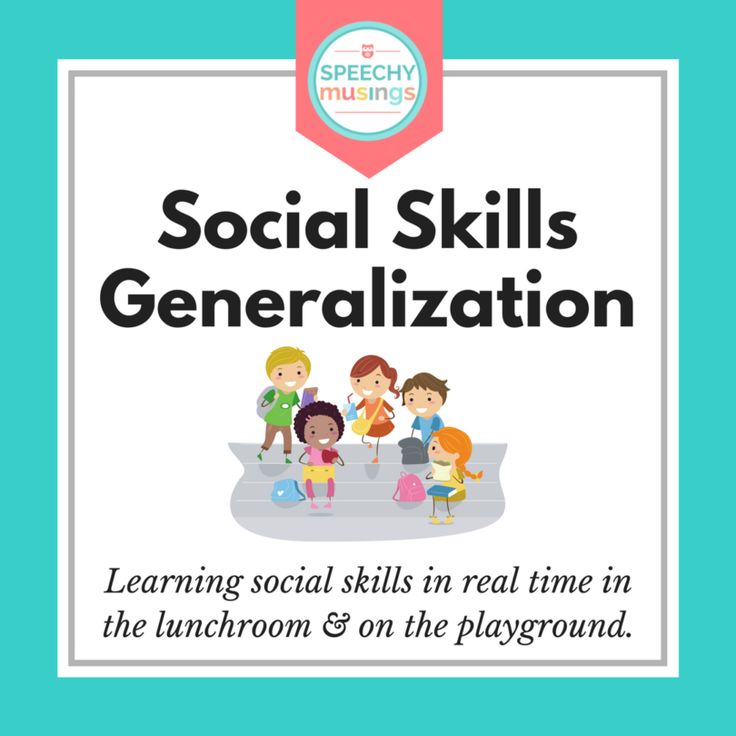 Don’t let yourself become socially isolated.
Don’t let yourself become socially isolated.
- You force humor when it might not be appropriate. You may want to defuse your anxiety with humor, but it’s not always the best time. Learn to read the room and only use jokes when it makes sense.
The bottom line
It’s normal to experience awkward moments. You might tell the theatre employee to enjoy a movie they’re not going to see or tell a joke that no one laughs at. It happens; cut yourself some slack.
But poor social skills go beyond the occasional blunder. At best, you seem aloof. At worst, outright rude. It’s good to evaluate your social skills and see which ones you can improve to be your best self.
That’s not to say that you can learn to overcome shyness or that you have to be a social butterfly. But it’s nice to know that when you want to strike up a conversation — whether inside or out of work — you’ll feel comfortable doing so.
If you need help, BetterUp is here.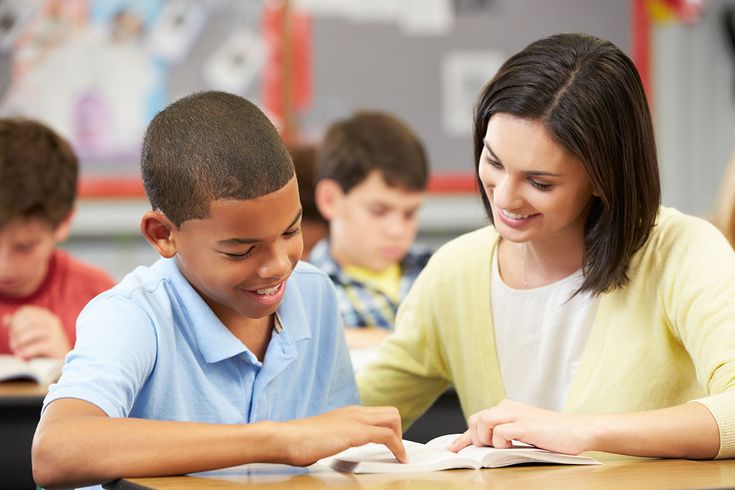 We’ll give you the tools you need to learn how to improve your social skills to ease your social discomfort or learn better communication skills. Whatever your best self needs, we can help you find.
We’ll give you the tools you need to learn how to improve your social skills to ease your social discomfort or learn better communication skills. Whatever your best self needs, we can help you find.
12 Ways To Improve Social Skills And Make You Sociable Anytime
Amy Morin, LCSW Posted on by Amy Morin
If you feel like you’re the awkward person at social events or you struggle to enter into conversations because you’re shy, it can impact your social life and your career. However, you can start improving your social skills by following these 12 strategies and soon, you’ll be able to enter into conversations with confidence.
1. Behave Like a Social Person
You can behave like a more social creature, even if you don’t feel like it. Don’t allow anxiety to hold you back. Make the decision to talk to new people and to enter into conversations even when you’re feeling nervous about it.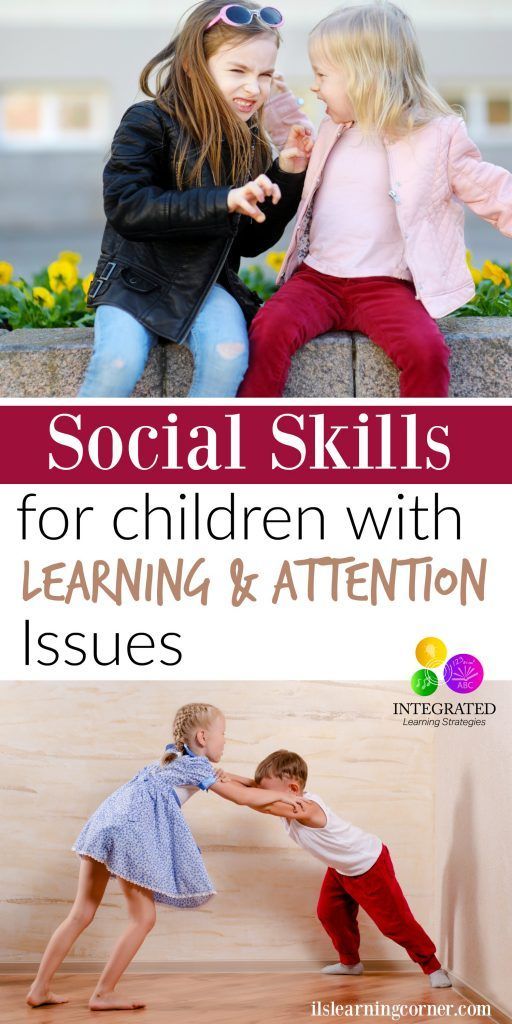 Over time, it will get easier and you’ll quickly start improving your social skills.
Over time, it will get easier and you’ll quickly start improving your social skills.
If going to a party or spending time in a crowd seems overwhelming, start small. Go into the grocery store and say, “Thank you,” to the clerk or go to a restaurant and order your food. Practice making small talk gradually.
3. Ask Open-Ended QuestionsIf you want the attention off you in a conversation, get familiar with open-ended questions. Encourage others to talk so you won’t have to make the idle chit-chat. Ask questions that require more than a yes or no answer and you may open the door to invite the other person to keep the conversation going.
4. Encourage Others to Talk About ThemselvesMost people really enjoy talking about themselves. Ask a question about a person’s career, hobbies, or family. Show you’re interested in hearing what is being said.
5. Create Goals For YourselfEstablish some small goals for yourself. Perhaps you want to practice one particular skill or maybe you want to start attending a social activity in your community. Establish a goal and begin to work on strategies that will improve your social life.
Perhaps you want to practice one particular skill or maybe you want to start attending a social activity in your community. Establish a goal and begin to work on strategies that will improve your social life.
Compliments can be a great way to open the door to a conversation. Offer a co-worker a compliment on a presentation he gave at a meeting or compliment your neighbor on his new car. Compliments can show others that you are friendly.
7. Read Books About Social SkillsThere are many books on the market that can help you learn specific social skills and ways to start conversations. However, keep in mind that reading about these skills won’t make you an expert. You’ll need to practice them over and over again.
8. Practice Good MannersGood manners go a long way in improving social skills. Practice being polite, showing gratitude, and using good table manners.
9.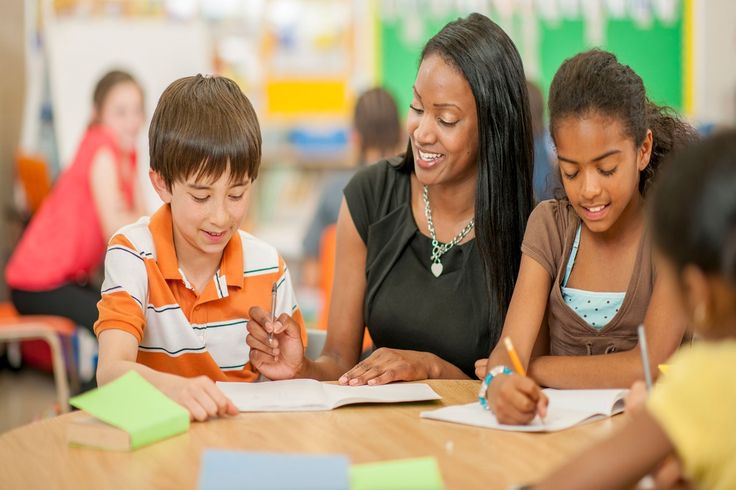 Pay Attention to Your Body Language
Pay Attention to Your Body LanguageNon-verbal communication is very important. Pay attention to the type of body language you use. Try to appear relaxed, make appropriate amounts of eye contact, and appear open to conversation.
10. Join a Social Skills Support GroupMany communities offer social skill support groups. Support groups help people who feel shy, awkward, or extremely anxious in social situations learn and practice new skills. You’ll start improving social skills and may be able to make new friends who understand your difficulties.
11. Stay Up to Date on Current EventsRead up on current trends and news stories so you have something to talk about with people. Try to avoid anything that is too controversial, such as politics, but do talk about other news stories that may be of interest. It can be a great way to start a conversation and can help you stick to neutral subjects.
12. Identify and Replace Negative Thoughts
If you have a lot of negative thoughts about your social interactions, it could become a self-fulfilling prophecy. For example, a person who thinks, “I’m really awkward and I will embarrass myself,” may sit in the corner at a party. As a result, he may leave the party thinking that he must be really awkward because no one talked to him.
For example, a person who thinks, “I’m really awkward and I will embarrass myself,” may sit in the corner at a party. As a result, he may leave the party thinking that he must be really awkward because no one talked to him.
Identify negative thoughts that are likely dragging you down. Replace them with more realistic thoughts, such as, “I can make conversation and I can meet new people.” Don’t allow yourself to dwell on thoughts that aren’t productive.
Posted in Uncategorized permalink
6 social skills that are important for every child (and adults, in fact, too) | Chips Journal
You can often hear that socialization is important for children. This is true - the sooner and better the child learns important social skills, the easier it will be for him to adapt to life in kindergarten and school, make new friends, work in a team and feel comfortable surrounded by other people.
According to modern research, children with well-developed social skills are more successful in adulthood, solve problems and conflicts more easily, and are less prone to stress.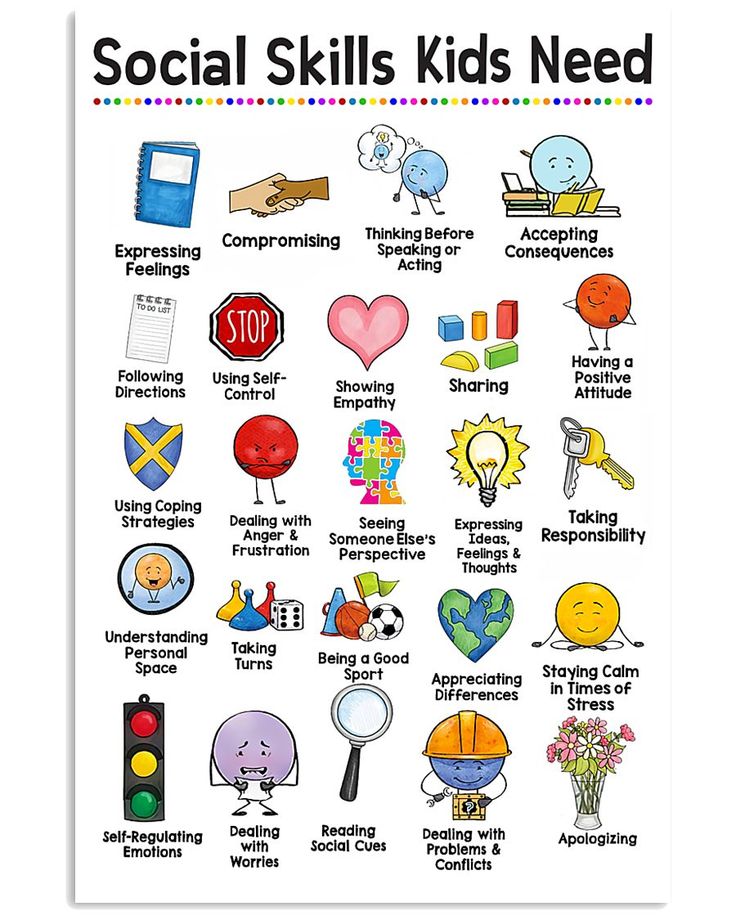 The good news is that social skills can be acquired and honed, just like the ability to walk, read, and ride a bike.
The good news is that social skills can be acquired and honed, just like the ability to walk, read, and ride a bike.
In order for a child to learn all the necessary social skills, it is not necessary to take him to kindergarten from the age of one and a half - he will still receive all the basics of interaction with other people in the family. Therefore, it is important for parents to pay attention to what patterns of interaction with people prevail in their home. Here are six basic social skills that can be called the most important in the life of any person.
Sharing
Sharing a toy or treat helps children easily connect and make friends with other children. According to a study published in the journal Psychological Science, children at the age of two may already feel the desire to share with others, however, only if they have an abundance of resources (for example, toys).
Children between the ages of three and six are not very fond of sharing with others, especially when they have to give away part of something they like.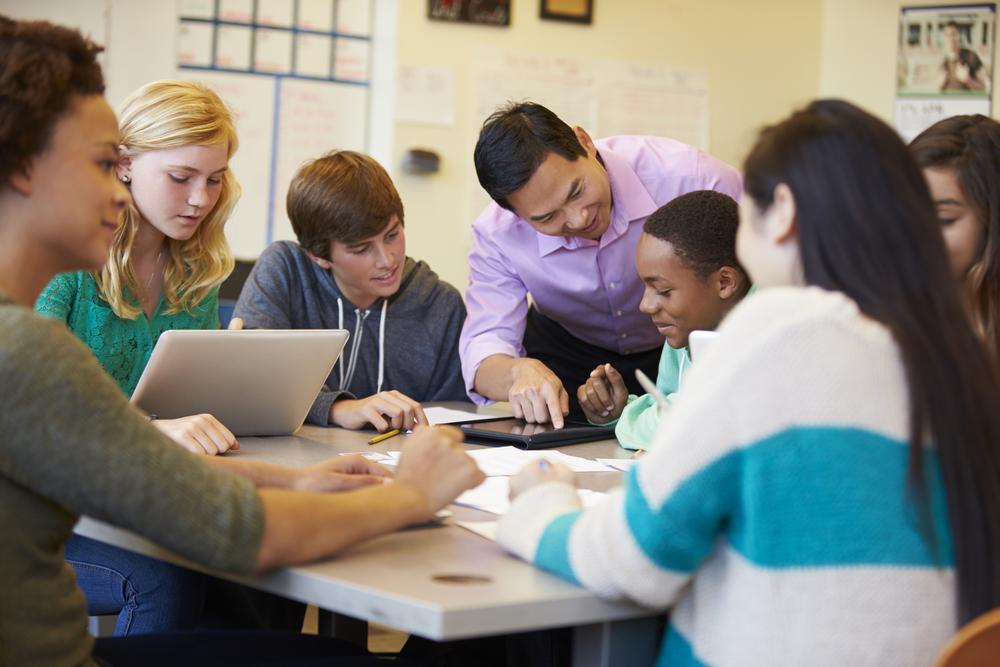 However, many can easily share a toy that they are already tired of.
However, many can easily share a toy that they are already tired of.
Studies have shown that children love to share, whose needs are satisfied (for example, before that they played enough or ate delicious food), in this case, the opportunity to share their joy with others becomes an additional source of pleasure for them and has a positive effect on their self-esteem.
How to teach it?
Do not force a child to share his things - this will only aggravate the child's reluctance to share and reinforce negative emotions in the process. It’s better not to force events, but simply draw the child’s attention to situations in which someone shares with someone (for example, in cartoons or on the playground), and also discuss with him the emotions of those who share and those with whom something is shared. then share. Mark all the times when your child sincerely and voluntarily shared something, praise and thank him.
Teamwork
Working in a team, people work together to achieve a common goal.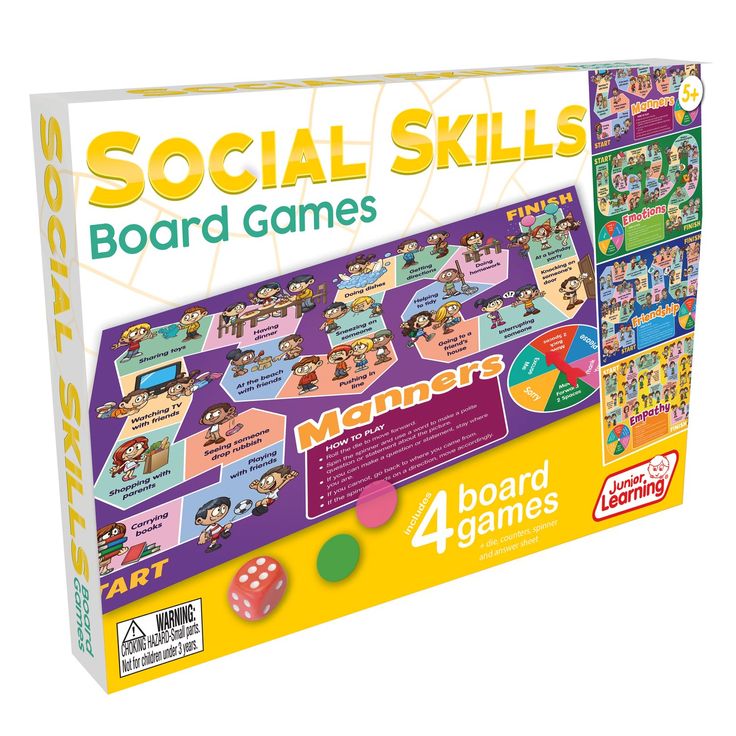 Children with teamwork skills are more respectful of other people's work, take an active part in solving collective problems and are more willing to help others.
Children with teamwork skills are more respectful of other people's work, take an active part in solving collective problems and are more willing to help others.
By the way, the skill of working together is useful not only during team games, at school or at work, but also in relationships in a couple or family. Around the age of three and a half, children begin to learn the basics of teamwork. Moreover, in this case, teamwork is anything: from the joint assembly of the constructor to a game that involves several participants at once.
By playing together, children have the opportunity to try different roles: some will like the role of leader, while others will be more comfortable in the role of performers.
How to teach it?
Talk to your child about the importance and benefits of teamwork. Come up with activities that you can do as a family. Note the importance of everyone's contribution to the joint result, draw the child's attention to how much can be achieved by working together.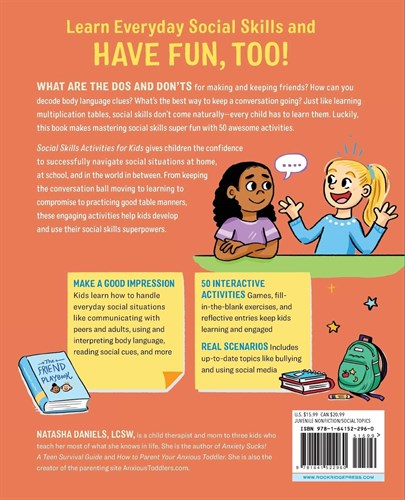
Ability to listen
Being able to listen does not mean sitting quietly, it means understanding what the other person wants to say. One of the most important skills in communication with other people. It is important that, as a child grows up, he learns to listen, understand and analyze what teachers, friends, parents and superiors say to him.
How to teach it?
While reading a book to children, take short breaks to ask them what the story is about. Let them retell the story in their own words, help fill in the gaps if they forget something.
Ability to follow instructions
Undoubtedly, rules exist to be broken, but there are rules that should not be broken. For example, safety rules or traffic rules. It is important to give children freedom, but it is also important to teach them to follow instructions and directions. The ability to act in accordance with specific requirements will save children from many problems in the process of study and work.
How to teach it?
Give children clear directions, note how consistently they follow them, and praise them every time they managed to stay on track and not be distracted from the instruction. Building blocks according to a diagram or playing games with clear rules also help develop this important skill.
Respect for personal boundaries
Children rarely know how to respect the personal boundaries of strangers. They may climb onto strangers' laps, sing songs loudly while riding a bus, or try to draw attention to themselves by yelling or brawling. This is normal - children gradually learn to control themselves, but it is still important for parents to indicate the boundaries of acceptable behavior for them when it comes to other people.
How to teach it?
Speak, explain to the child where his own boundaries end, and where the boundaries of other people begin. Gently guide him in his communication with other people if you notice that he begins to cross these boundaries in an unacceptable way.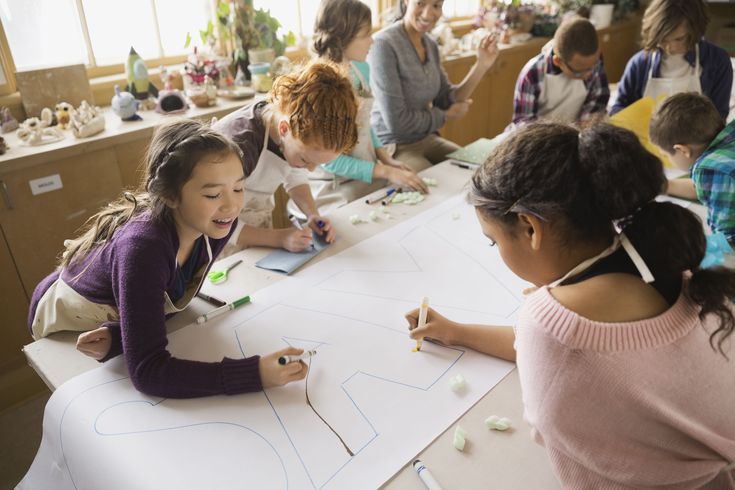
Politeness
This skill is always useful. And although young children are alien to the concepts of sincere gratitude or sincere repentance, this does not mean that they cannot be taught to use polite words in communication with others: to greet other people, to politely formulate their requests, to give thanks for gifts and good deeds.
How to teach it?
Do not turn politeness training into thoughtless training. Remind your child about the importance of using polite words, prompt him, pay attention to situations when these words are used by other people.
It is important to note that a child will master all the listed skills much faster and better if they are regularly demonstrated in his environment. It is foolish to force a child to be polite, respect other people's boundaries and listen if the people around him treat each other and treat him impolitely and disrespectfully.
In the end, in the process of children learning different skills and norms, the key factor is not what parents say, but what they do themselves.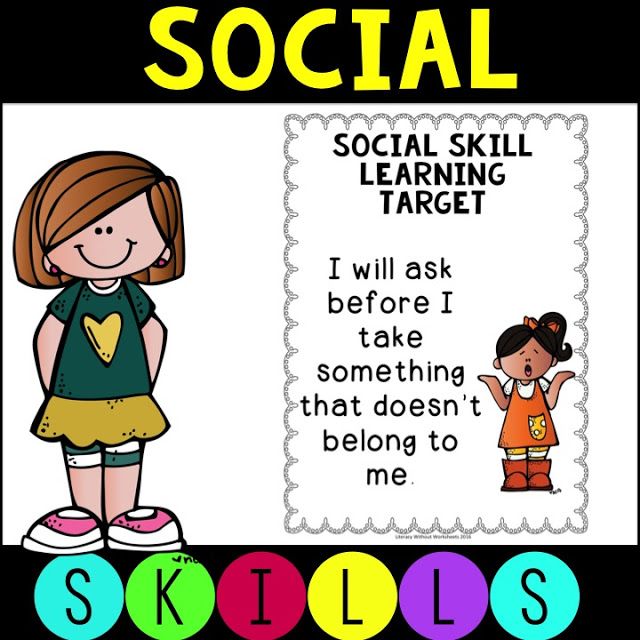 So first check if you yourself have all the listed social skills (they say they can be pumped even in adulthood), and then proceed to their development in a child.
So first check if you yourself have all the listed social skills (they say they can be pumped even in adulthood), and then proceed to their development in a child.
Read more
The child does not want to do what is required of him. How to be?
“It seems to the child that events that he could not influence are happening through his fault”
How to develop social skills with teenagers
There are parents who find it difficult to work with their teenagers on social skills. . These skills are key when young people can communicate with other people without problems. The ability to communicate helps a young person develop important values such as empathy or self-esteem.
Social skills need to be developed from an early age until they reach the stage of adolescence.
Index
- 1 What social skills
- 2 What social skills need to be developed
What social skills
Social skills are necessary and important for behavior when it comes to interaction and relationships with other people.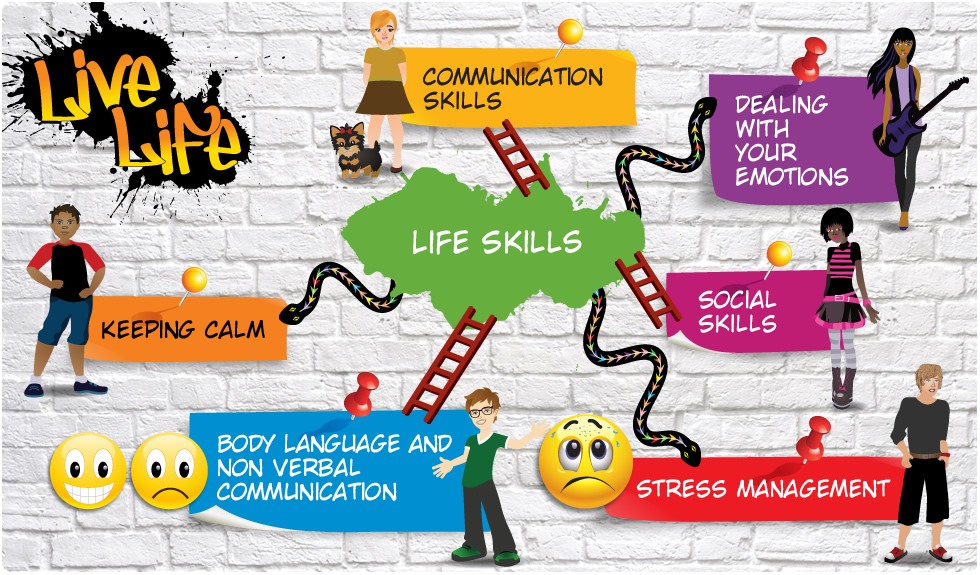 These skills are different and differ depending on the context in which the adolescent himself finds himself.
These skills are different and differ depending on the context in which the adolescent himself finds himself.
Adolescence is a very difficult stage for any young person, as they are undergoing a series of changes that will help you shape your personality. Therefore, it is very important to be able to work on these skills both in educational centers and in the family itself. Elements such as respect or tolerance towards others should always be encouraged.
There are many ways to work on these social skills among young people, such as group dynamics. Through them, a young man can communicate with other people his age and put yourself in their place to solve various problems.
What social skills need to be developed
- They must first learn a number of basic social skills. for example, the ability to participate in a conversation, give thanks for something or be able to listen to others.
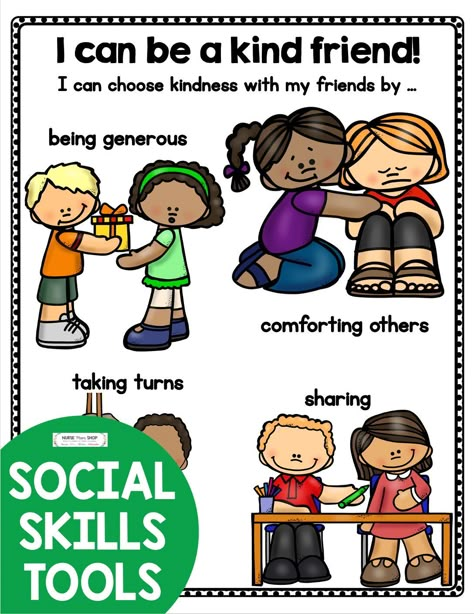
- In addition to the above, it's good to work on another series of much more advanced skills, such as asking for help when they need it, or asking for forgiveness for something they've done wrong. In this case, everything is more complicated, because it is difficult for young people to recognize their wrong and they must ask for forgiveness. Young people should always understand that everyone makes mistakes, and it's good to apologize for that.
- There are also a number of social skills related to feelings. The good thing is that they learn to recognize their own feelings, empathize with others, and express affection when necessary. Emotional education plays a key role in modern society, hence the importance of its education. Unfortunately, there are many teenagers who do not work on these feelings and lack of affection and empathy. is pretty obvious.
- Social skills planning is also important in teaching the youngest.
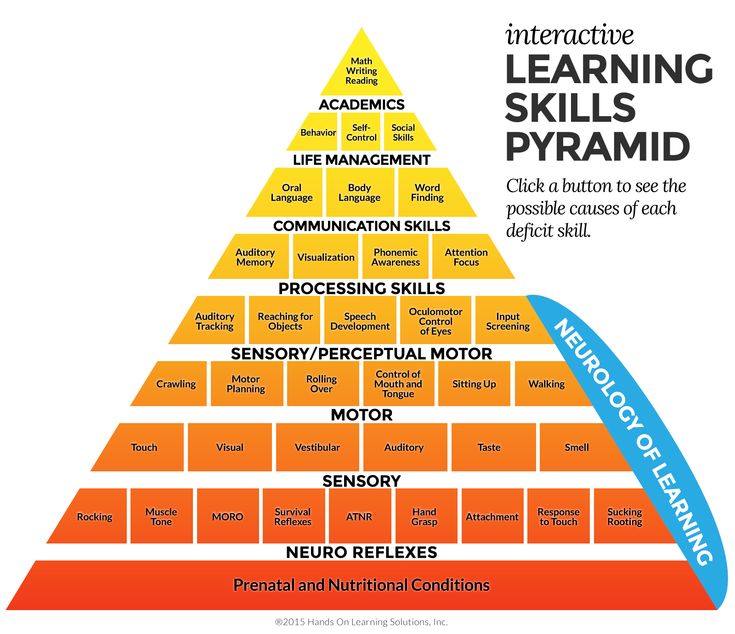 It is good to take the initiative, reach agreements with other people and be able to resolve various conflicts that may arise throughout your life. These types of skills are important when working in a group in the classroom or for extended periods of time in the workplace. You must be able to work in a group and be able to problem solve with reason.
It is good to take the initiative, reach agreements with other people and be able to resolve various conflicts that may arise throughout your life. These types of skills are important when working in a group in the classroom or for extended periods of time in the workplace. You must be able to work in a group and be able to problem solve with reason. - The last type of social skills that a young person must master are those that represent an alternative to possible aggression. Thus, it is very good that you know how to protect a friend by saying or always keep your composure and calm.
As you can see, social skills are more important than people think at first glance. Although adolescence is a difficult time in the life of a young person and the family itself, the ability to teach these skills to young people is key. This will help you communicate well with other people. Parenting and raising a child is not an easy task at all, especially during adolescence, however it is a task that both parents and professionals must undertake so that in the long run they have a set of key values that they can take advantage of.